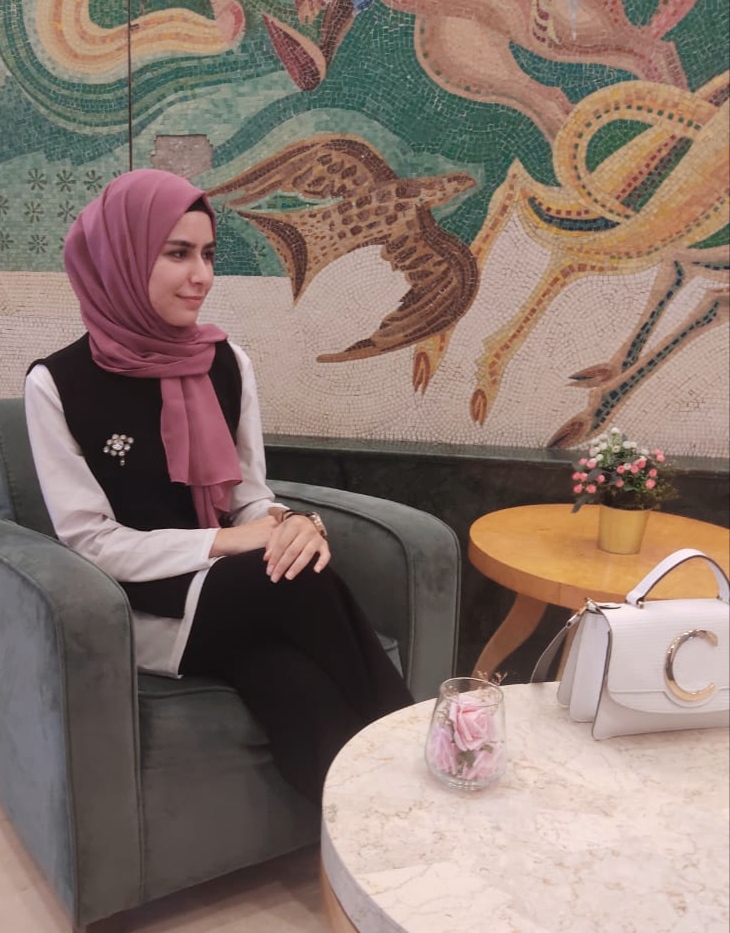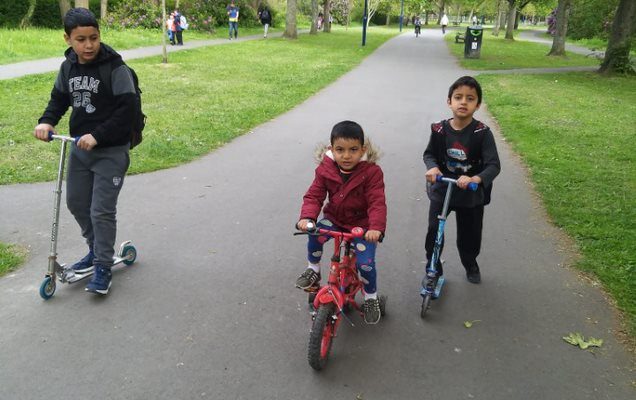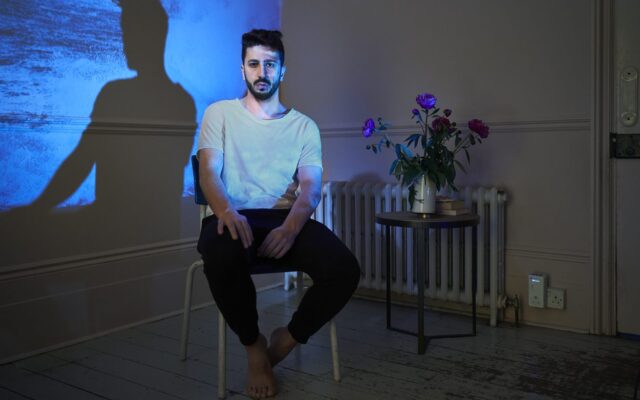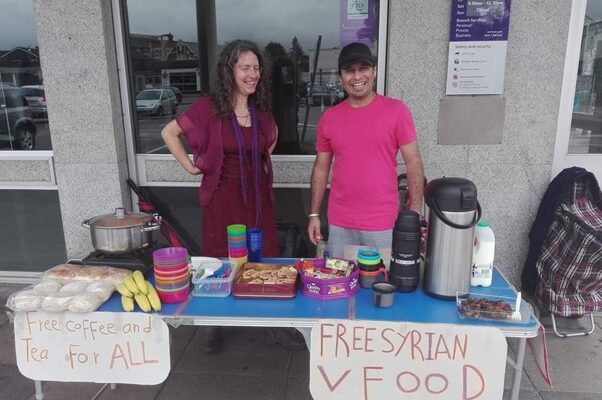UNHCR’s DAFI scholarships give young Syrian refugees hope in their quest for higher education in Lebanon.
Syrian UNHCR-supported university scholar, Rania, tells us more about her experience with UNHCR’s DAFI Tertiary Scholarship Programme in Lebanon.
22.09.2022
UNHCR’s DAFI scholarship programme is a joint initiative with the German government. It offers qualified refugee and returnee students the possibility to earn an undergraduate degree in their country of asylum or home country.
According to UNHCR 2022 Refugee Education Report, enrolment at the tertiary level has risen to 6 per cent. Although numbers are increasing, UNHCR aims to achieve a 15 per cent enrolment of young refugees in higher education by the year 2030 – the DAFI scholarship programme is one of the pillars of helping achieve this.
–
I was forced to flee Syria when I was 11 years old. I still remember everything about that day; it was a cold winter day. We only had our clothes on when my family and I rushed out of the house after they started bombing our village.
We were fortunate enough to get safely to Lebanon and start our new lives there. I’m enormously thankful for my mother. She knew that continuing our education was the most crucial thing for us; no matter how difficult the situation was. Although the semester had already started, my mother managed to convince the headmaster to enroll us. I was bullied a lot at first because of the way I spoke and dressed. I also didn’t speak English or French when I started school, so I had to put in extra effort to be able to catch up.
I wasn’t going to let the challenges stop me; education is my hope in this life, my voice, and my identity. As refugees, we must fight hard for our chances but with education, we can dare to dream. I can’t even imagine the life that I would have if I didn’t study.
I managed to graduate high school at the top of my class. I knew I wanted to be a DAFI scholar since I heard about it from a previous DAFI alumnus. Unfortunately, COVID-19 happened that year and the programme didn’t launch a call for new applicants. It was difficult to study at my own expense; I had to miss a few exams because I couldn’t afford the transportation fares.
I always knew that I would study psychology. Witnessing war, fear, death, being forced to flee my hometown at a young age, and then becoming a refugee have all led to the major that I’m currently studying and passionate about. I know that psychological therapy is still heavily stigmatized in our society. That’s why I’m planning to use my professional knowledge to change that. I really want to be able to use my education to help people overcome their traumas, especially children who have lived through the war in their countries.
I applied for UNHCR’s DAFI scholarship programme in my second year, as soon as it opened. When I was accepted, I felt like there was hope; DAFI felt like finally seeing the light at the end of the tunnel.
Although I need financial support to pursue my education, my experience with the programme goes beyond that. I feel like I have a support system with DAFI, especially when I feel alone and the challenges increase; the people responsible for the programme always check up on us, making sure that we’re doing well. Also, the programme offers us various training and workshops so we can improve our skills beyond academic knowledge.
Most importantly, UNHCR’s DAFI programme encourages us to volunteer in our community. I have completed 402 voluntary hours (out of 60 required hours), which is the highest among my fellow scholars. One of my favorite volunteering activities is to teach Syrian refugees English and French, and help them with their homework.

Rania, a Syrian UNHCR-supported university scholar in Lebanon
I was supposed to graduate this year but the constant strike at my university is delaying this. In the meantime, I’m trying to use my time and learn by myself. I enjoy reading about my field and discovering all the latest research and books. However, it’s extremely difficult because I don’t own a computer; I read everything on my phone that has a broken screen and I borrow my colleague’s laptop whenever I need to write assignments.
After graduating, I’m planning to apply for a master’s degree scholarship in Europe. Psychology is a dynamic and fast-evolving field and I still have a lot of learning to do. Then, I’m planning to use my knowledge by working with a charity or an organisation to help refugees and forcibly displaced children who have been psychologically affected by conflict or war.
—
To find out more about UNHCR’s work supporting refugees’ education, please read UNHCR Education Report 2022




